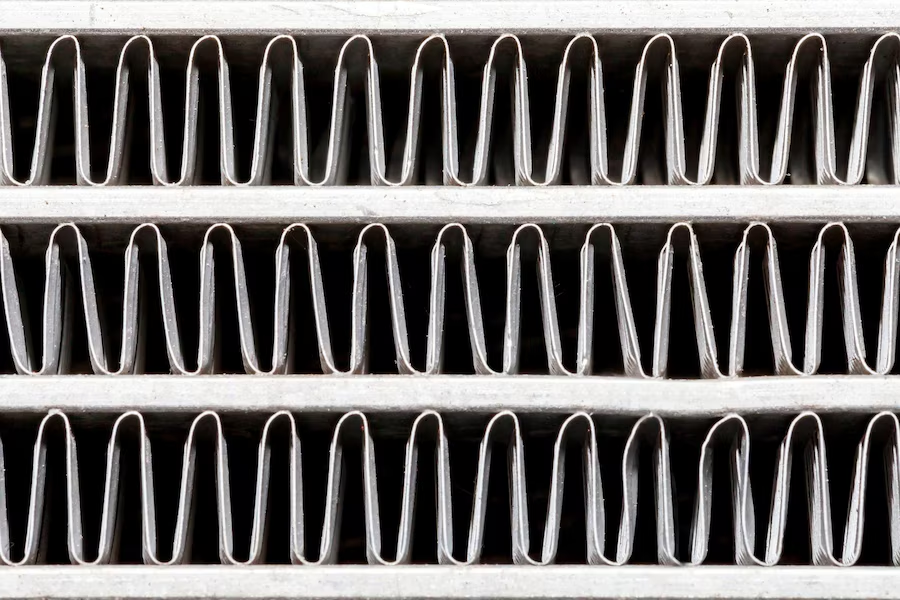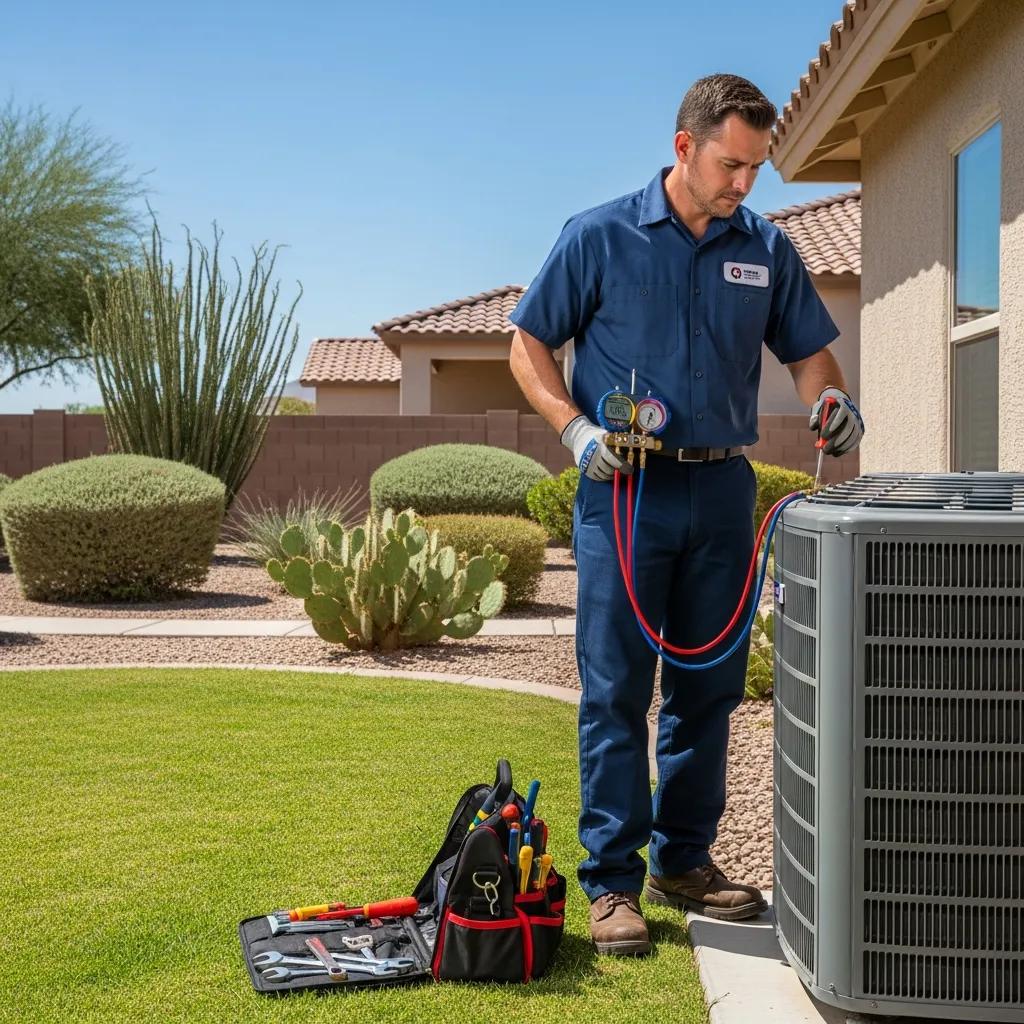A frozen evaporator coil is one of the most common issues homeowners face with ductless AC systems during hot months in Nogales. It happens when the moisture in the air freezes on the coil instead of draining away as it should. This build-up of ice blocks airflow, reducing the system’s ability to cool your space efficiently. If left unchecked, it can lead to bigger problems like compressor failure or total breakdown.
Leave a Review for Leyva Refrigeration’s Nogales Ductless AC Repair
100% satisfaction guarantee
Our repair service is fast, affordable and professionally guaranteed. We comply with all local codes and building guidelines.
Dealing With Frozen Evaporator Coils in Your Nogales Ductless AC

Ductless AC systems are popular in Nogales homes for their energy efficiency and zoned cooling benefits. But just like any air conditioning system, they require regular maintenance. When high summer temperatures hit, your system works harder, and if things aren’t running smoothly, frozen coils can sneak up fast. Understanding why it happens and spotting it early can help keep your system working the way it’s supposed to.
Common Causes of Frozen Evaporator Coils
Frozen coils don’t happen out of nowhere. They’re usually a sign that something else in your system isn’t working correctly. Catching the cause early can save time, money, and a lot of frustration. Below are the most common reasons evaporator coils freeze up in ductless AC systems:
1. Low Refrigerant Levels: When refrigerant is low, the coil doesn’t absorb heat from your home the way it should. This lack of heat causes the coil’s surface temperature to drop too much, eventually freezing the moisture in the air. Leaks in the refrigerant lines are usually the reason behind this issue, and they need to be handled by trained technicians.
2. Dirty Air Filters: Filters can clog faster than expected during constant summer use. Reduced airflow can keep warm air from reaching the coils. Without that airflow, the temperature drops and moisture sticks around to freeze on the surface.
3. Blocked or Closed Vents: In ductless systems, each unit has its own air intake and output. If furniture or curtains block the air path or the vent settings are incorrect, air circulation gets disrupted. This often causes the coil to freeze over time.
4. Fan Problems: If the fan isn’t moving air efficiently, either due to wear or electrical issues, the coil doesn’t get the airflow it needs. The lack of movement allows ice to form and stay on the coil. You might notice weak airflow or inconsistent cooling as a result.
Even a well-maintained system in Nogales can develop one of these issues during long stretches of hot weather. One homeowner noticed his bedroom wasn’t staying cool despite the unit running more often. A quick inspection revealed a filter so clogged it had started restricting airflow entirely. Once it was swapped out, the coil cleared up and performance improved quickly.
Identifying the root cause early makes a big difference. Waiting too long can lead to added pressure on the system, further damage, or even safety issues. A routine inspection can head off these issues before they affect your comfort.
Signs Your Ductless AC Coils Are Frozen
When evaporator coils freeze, your ductless AC might not shut down completely, but you’ll notice some telltale signs that things aren’t right. These systems are designed to work quietly and consistently, so even a small change in performance is worth paying attention to. Spotting these indicators early can save you a more costly repair later.
Here’s what to look out for:
– Reduced Cooling Efficiency: If your home in Nogales isn’t reaching the temperature set on the thermostat, frozen coils could be disrupting the cooling cycle. You might find yourself lowering the temperature more often just to stay comfortable.
– Ice Build-Up on the Coils: Sometimes, ice will form around the indoor unit. This could be seen on the coil or the lines coming into the unit. It’s a clear sign that the system isn’t removing heat the way it’s supposed to.
– Frequent Cycling On and Off: If the system starts and stops more often than usual, it might be trying to compensate for poor performance caused by ice on the coils. This kind of cycling uses more energy and can speed up wear.
– Unusual Noises: Clicking, hissing, or unusual airflow sounds can point to fan strain or refrigerant leaks, both of which are often linked to frozen coils.
Even when the unit runs, you may notice more humidity inside or longer runtime without much temperature drop. These small changes can quietly grow worse over time. Ignoring them increases the likelihood of a full shutdown or system damage, especially during the hot summer stretch in Nogales.
Steps to Fix and Prevent Frozen Coils
Once you’ve noticed signs of a frozen coil, correcting the issue quickly makes a significant difference in both performance and long-term reliability. It’s not just about fixing the ice build-up — it’s about preventing it from returning.
Here’s how that can be managed:
– Regular Filter Maintenance: Dirty filters block airflow and are one of the most common causes of frozen coils. Replacing or cleaning filters monthly during the summer is a simple and effective habit.
– Monitor Refrigerant Levels: If refrigerant is low, the unit can’t transfer heat effectively, leading to freeze-ups. Our technicians can check for leaks and recharge the system safely during routine servicing.
– Keep Vents Clear and Open: Make sure furniture, drapes, or objects are not blocking the air direction of the unit. Proper airflow keeps the coil from reaching freezing temperatures.
– Schedule Routine Inspections: Having the system checked at the start and middle of summer helps catch problems early. Even if the unit seems to be working fine, technical issues may be building behind the scenes.
For example, a homeowner in Nogales had his AC inspected after noticing it ran longer than usual. Our technicians found that although the filters looked clean, the outdoor unit’s coil was coated with dirt, choking airflow and leading to coil freeze. A deep clean solved the problem before it escalated.
Regular upkeep maintains better cooling and lowers the chances of parts wearing out too early. It also helps you avoid sudden breakdowns during the hottest days when you need the system most.
Get Your Ductless AC Back on Track
Frozen evaporator coils are more than just an inconvenience — they’re a warning sign that your ductless AC system isn’t working the way it should. Ignoring the symptoms can lead to cooling delays, increased energy use, and costly part replacements. Quick action keeps repair needs smaller and protects your long-term comfort.
If your ductless AC in Nogales isn’t cooling efficiently or you’ve spotted signs of coil freezing, it’s time to have it looked at. Let skilled technicians diagnose what’s going wrong and get your system back to full power. With regular service and system care, frozen coils don’t have to become a steady summer problem. Keeping your cooling system healthy is the best way to stay comfortable, efficient, and stress-free through peak heat.
Keep your cooling system running smoothly by addressing frozen coil issues before they become major problems. If your unit shows reduced performance or irregular airflow, you may benefit from our ductless AC repair in Nogales to restore efficiency and prevent further damage. For a quick estimate or to book a service visit, please contact us today.


